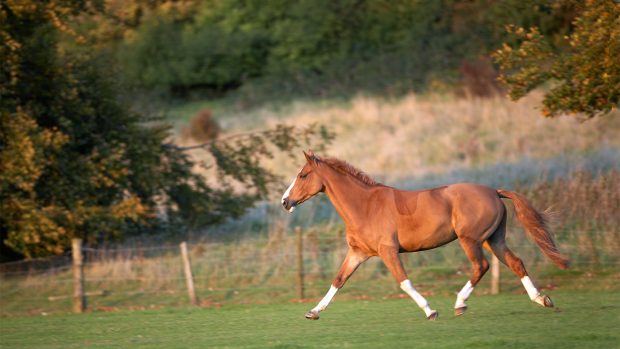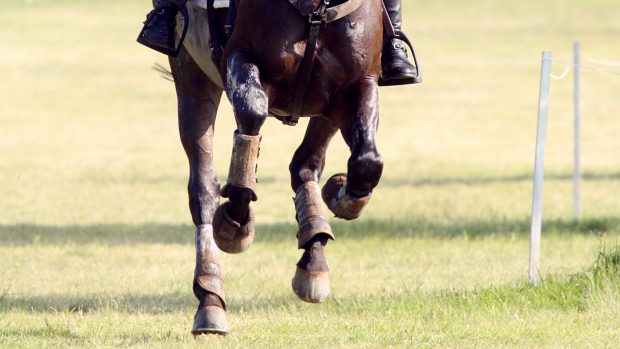A study that may help vets influence the natural repair response in horses’ damaged joints has won a prestigious industry award.
Equine sports science student Kate Scothorne won the Royal Agricultural Society of England’s (RASE) Eqvalan Duo Equine Thesis of the Year Award for her third-year dissertation: Identification of stem cell markers in an in-vitro model of intrinsic cartilage repair in horses.
Scothorne’s interest in the Nottingham Trent University course and research into joint repair originated from a horse she bought after leaving the Army six years ago.
“I began working in industry, but then decided it wasn’t for me, so I took a career break and went to study at Nottingham,” she said. “I wanted to know more about my horse — he’d had OCD as a youngster and was never right behind; always a bit stiff and with numerous things going on with him. I think that’s what sparked my interest.”
Having opted to study stem cells, she spent the 2004 summer conducting experiments during a placement at the Comparative Orthopaedic Research Group (CORG) at Cambridge University’s vet school. In September, for her final year, she returned to Nottingham to begin the analysis.
Scothorne said the most exciting area of her research was the fact age did not affect repair potential — older horses had as much chance of repair as very young animals.
“Stem cells are cells that aren’t mature and have not committed themselves to becoming any particular type of cell in the body — you can have stem cells in bone marrow that can become a range of tissues, including bone, cartilage, muscle or fat.
“We found stem cells in cartilage that had already committed themselves to becoming mature cartilage, called progenitor cells. This had implications because it was possible they’ll divide to produce more cells, which increases the possibility of repairing the cartilage. Mature horses had the same level of progenitor cells as younger horses.
“Surgical cuts may increase the activity of progenitor cells. My dissection cut had an effect on stem cells, not only where the cartilage has been cut, but quite a lot deeper.”
Dr Frances Henson, an equine surgeon with CORG, who devised and supervised Scothorne’s studies said: “It is very preliminary work but it’s incredibly groundbreaking. We are the first researchers to publish that there are stem/progenitor cells in equine cartilage — and this hasn’t been shown in any species.”
Scothorne is the second Nottingham Trent student to win the award and received £500 for her achievement. Her thesis has formed part of a report published in a human medical journal, and she now plans to study physiotherapy at Leeds.
Dr Henson has won a grant from the PetPlan Charitable Trust to continue the project.
SUBSCRIBE TO HORSE & HOUND AND SAVE Enjoy all the latest equestrian news and competition reports delivered straight to your door every week. To subscribe for just £1.43 a copy click here >>
|




